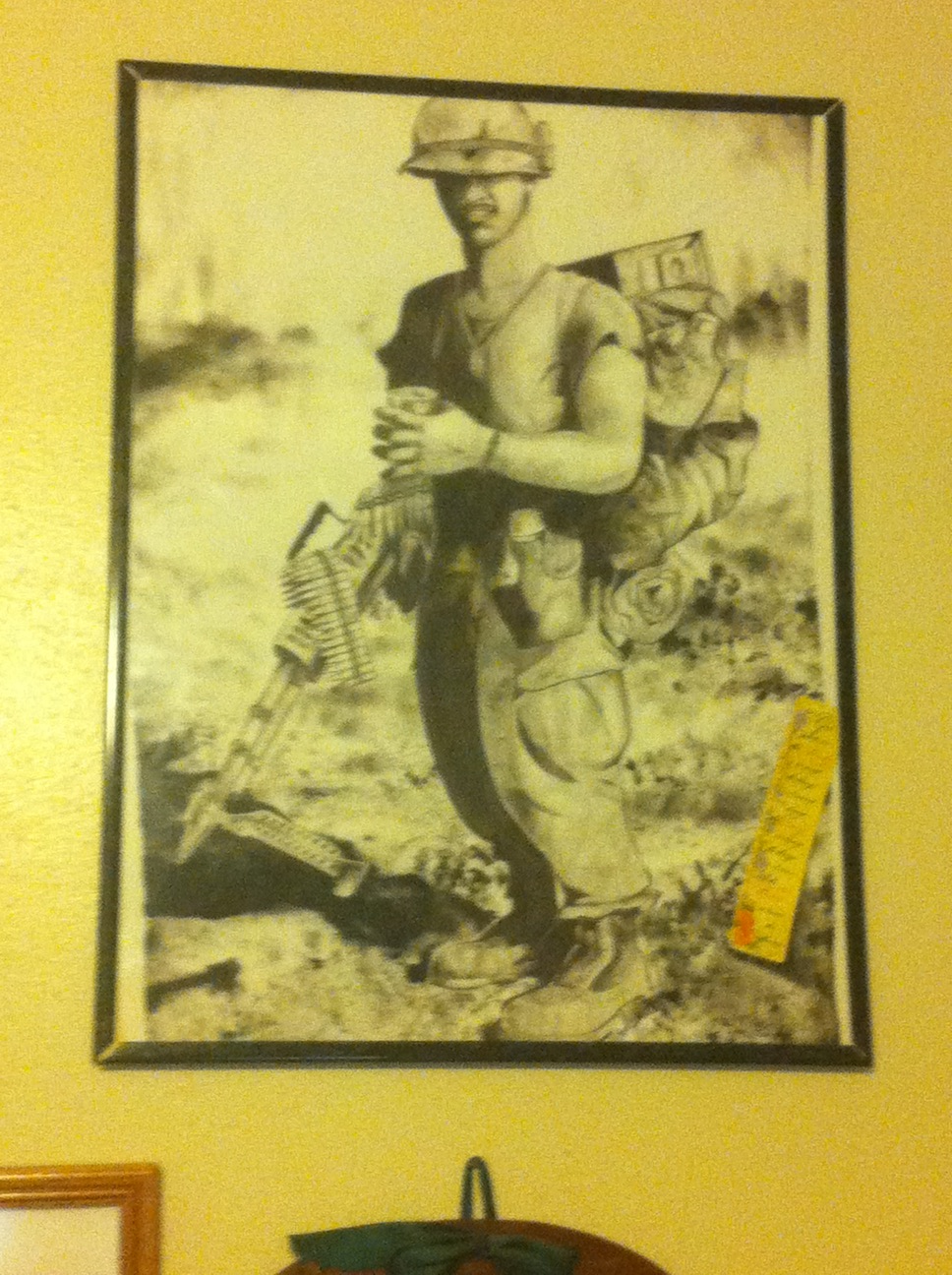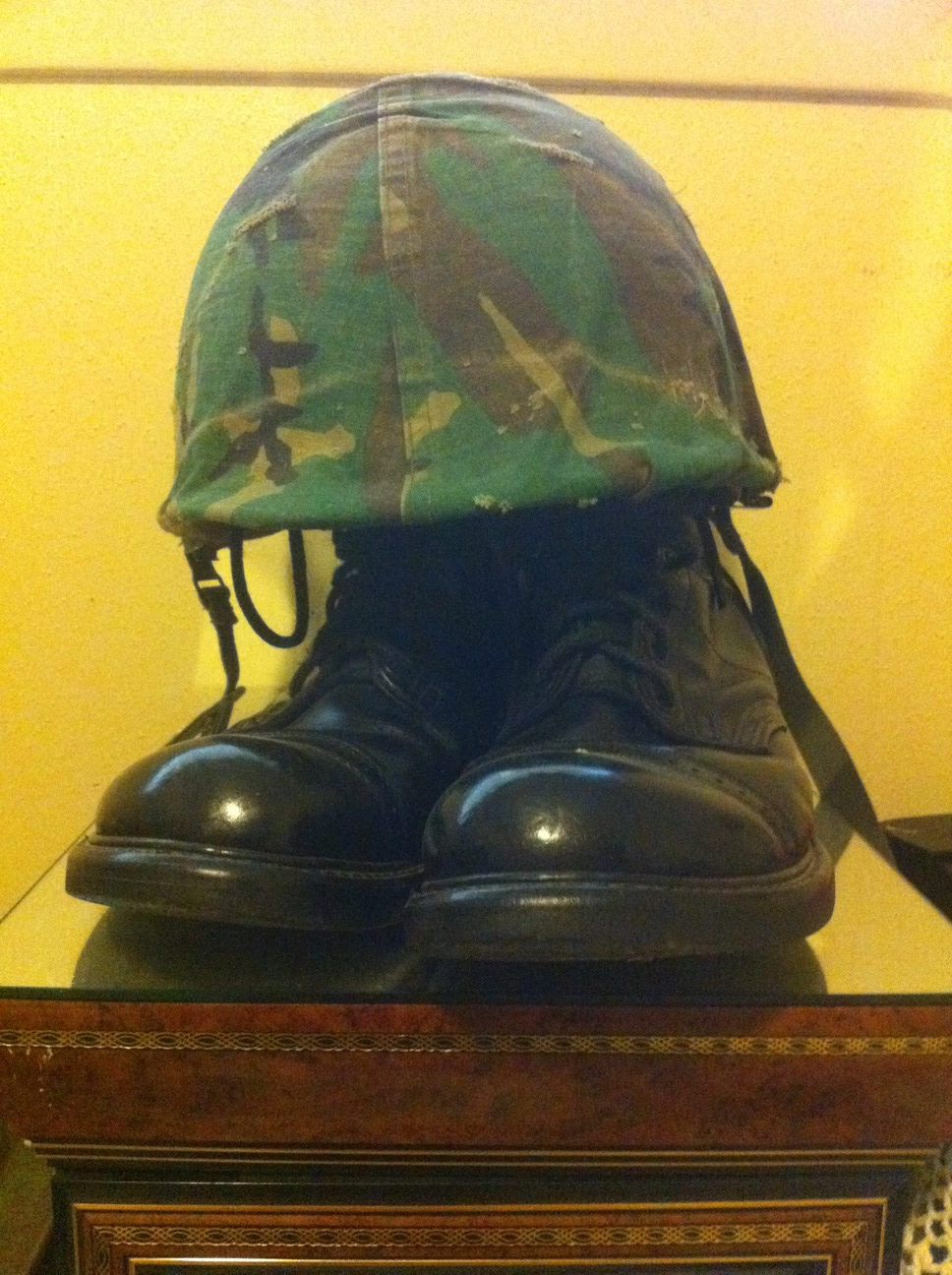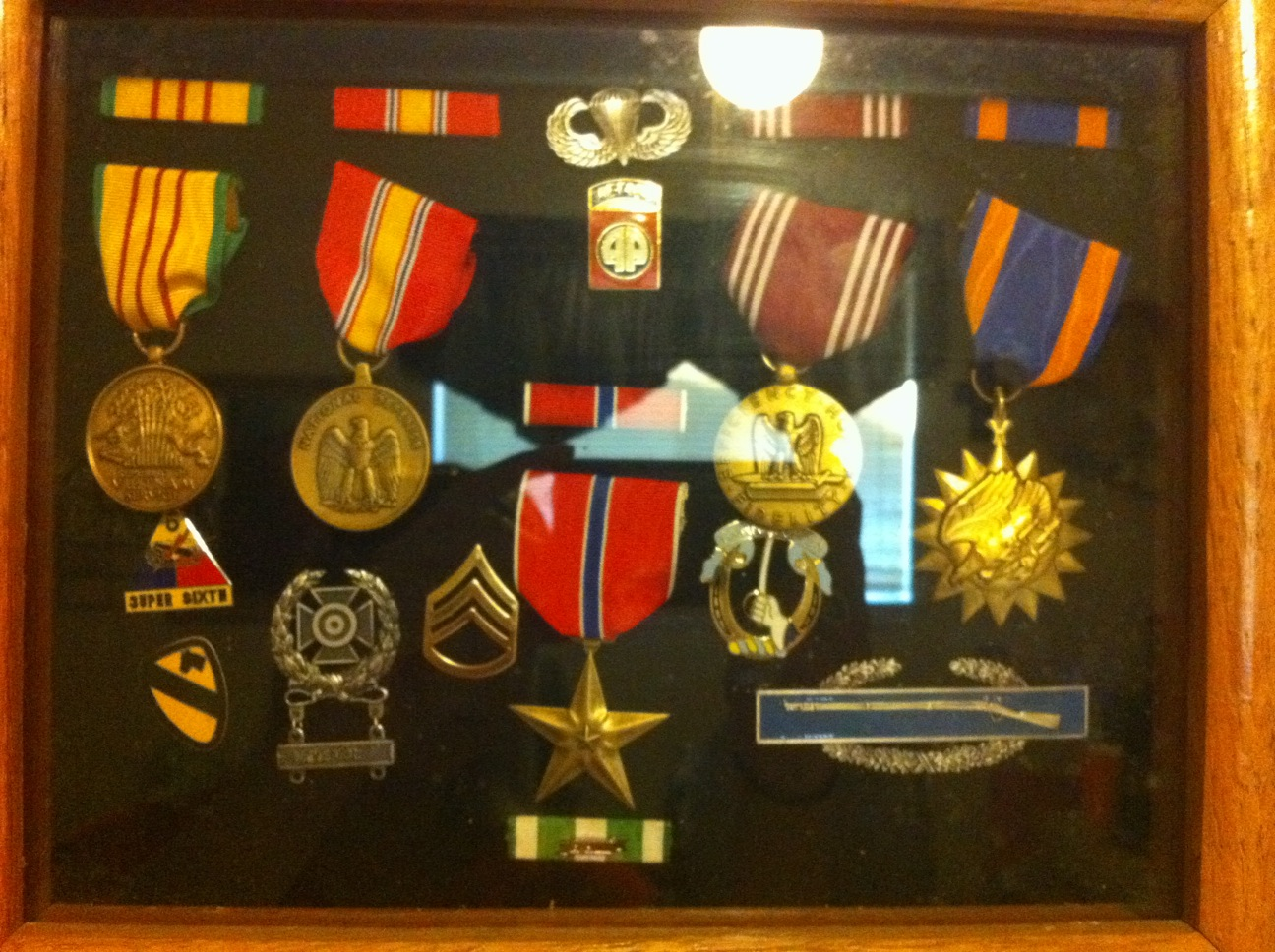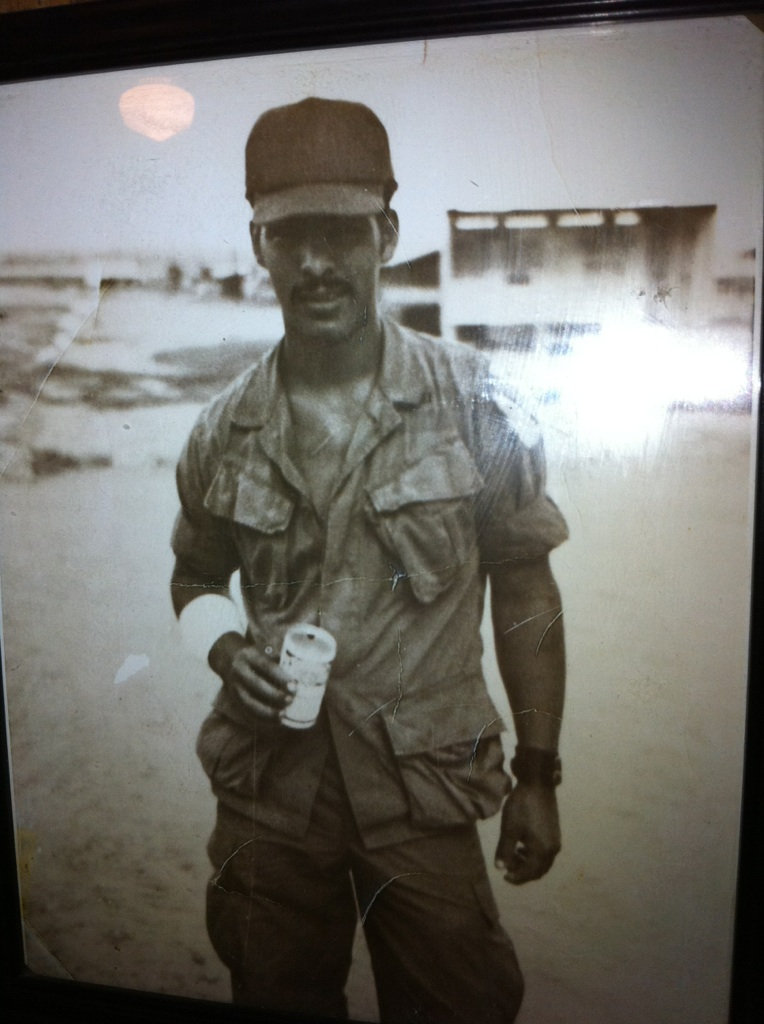TRANSCRIPTION
How old where you when you got involved in the Vietnam War and How?
I got involved in the Vietnam War because I was a young kid, dropped out of school, went to work and all I heard was the WAR, the WAR, the WAR and being a little bit brave I volunteered. I didn't want to be told about the war anymore. I wanted to see the war, I wanted to see it I wanted to be in it and if I didn't come back it didn't matter. But I got tired of hearing about it I got tired of people protesting against the war. I lived in Talido, Ohio and it was a big thing going on over there at the campus so I volunteered I went in there and served my time.
How was basic training for you?
Basic training was good. It was a little tougher then what I expected. I wanted to train but I did not realized that they were going to push you to your limits and it was good except that the...before I knew it, it was like I wish it was over. And then just towards the end I had some special air bourne troopers come in with the...presenting themselves as the reps from the 82nd Air Bourne Divisoin looking sharp. I mean its a few good men its an elite group and they encourage me to do the best and/but looking for volunteers and I volunteered to become a paratrooper. Back when I went in was the last year before they stopped the draft. I'm a volunteer but the draft ended about a year after I got in and yes it was very aggressive. They push you, they not to say kick you but they make sure you got things done. If you want to call somebody putting a boot up your back. Yes, they kick you. But no they tried to get the best out of you. Make sure that you were strong, and be able to function when you were in hard time, in a situation. I wanted to be there. I wanted to see it. I couldn't go to Vietnam unless they took me in there. I couldn't go to Vietnam unless I passed all my training. So after I left basic training, I went to a special class of what they call Advance Air Bourne Training and I went to what is called A.I.T. where you prepare yourself for whatever you want to be. And I wanted to become a paratrooper so I went to Advance Air Bourne Training. Ran three miles every morning, ran everywhere I went, for about three months and I graduated out of that class at the A.I.T then I went to jump school to become a paratrooper where I trained for 30 days. Hard training to make you regid enough to be able to jump out of airplanes and not be fearful and to be proud of what you do.
How long where you in the Vietnam War?
I was involved in Vietnam War from 1970 to January in 71. Served 17 years 3 months and 22 days of Active Duty and Reserve.
Can you describe a good day in Vietnam?
A good day at Vietnam was when you could sleep at night and the next day you weren't expecting enemy fire. Because you know there were days where...you don't fight everyday. That was a good day. I spend all my tour in the jungle so it was hard to determed which days were good which days were bad. But you kinda knew.
Can you describe a typical day in Vietnam?
A typical day being an eleven charter bravo. Which I was an Airborne Infantry. I was in the jungles I went on patrols I went on recons on LP's and listing points at night and OP's during the day which is Observation Post which was a typical day.
Where were you stationed at in Vietnam?
I was stationed in Vietnam with the 1st Cavalry Air Mobile Division. I was reassinged to the 1st Cavalry Air Mobile Divison in Bien Hoa beacuase I was in a mini fire base or in a base where...I got reassigned because the 82nd Air Bourne Divison had just been deployed back to the states. So because I was a machine gun specialist and I jumped out of air planes I was assigned to a recon unit with Eco Company. As I got to Vietnam I was assigned to Eco Company and I was verbally reassigned to another unit and they lost track of me for four months. I was listed MIA, A-Wall, lost. For 120 days while I was in the jungles fighting, getting wounded. I was with other guys but no body knew I was there. The unit which was the... had no knowledge of where I was for the first 120 days I served in the Vietnam. Until they found me and re-estated me back into the military as a soldier that had been missing or lost and I was put back in paper work. No pay, no log, no food, nothing for my wife nothing.


What was it like being in the fields?
Being in the field was...it wasn't dangerous. Well it was dangerous but wasn't dangerous because we were looking for trouble. Being assigned to an Air Mobile Recon Unit we went out in the jungle looked for the trouble, didn't find any we got sent back to where we can get air lifted in the helicopters and maybe there was an area where it was hot where they spotted the enemy. Then we would go in there and air assault the area. Sometimes get shot at sometimes we didn't. Make contact sometimes we didn't. You know it was...we were looking. Our job was to go out there and look for it. Look for the enemy and try to dispose of the enemy.
Did you have any foreign friends?
No, my tour was in the jungle. I had...the only time I spend out of the jungle was when I got re-estated into the military and I drove through a saigon and went to a Bien Hoa airbase in the airport when they re-estated me but when they put me back in the military. Other than that my tour duty was jungle, jungle, jungle.
What was food like?
Food, we ate sea rashes which is not even close to what they have now in days. It was a little brown box where they have scrambled eggs where they had probably been made about five years earlier or ham, pork rings, salted crackers, peanut butter, jelly, little bags of coffee and sugar and chocolate that you can warm up your water and make your chocolate make your coffee. They always gave you a little back of cigarettes, four cigarettes, Lucky Strike Camels, I believe it was Winstons I don't recall. That was our meal everyday. Every time we got a meal eggs, ham, sausage, meat balls. It was canned food that was canned for the military. Some was old and some wasn't. There were times we didn't eat there were times that we were in some locations where we could get logged when they bring you the food, the paychecks, the mail they would bring what they call the cannisters of warm food and they would ask us to go by squads to pick up a hot meal. And that was very rear but we got some of it. Mashed potatoes, fried chicken, something a little different. Except for also we had our parents used to send us food like potted meat, spam and that. The one I recall the most would be when my mom would sent me tortillas. They were green because she thought Vietnam was just around the corner and they would get there ten, fifteen days later and they were all green and I would just scratch off the green and I would eat them. It's the thought that counts.
What rank where you in the Vietnam War?
I was a...when I left the military I came out as staff sergeant. When I was at Vietnam I was a specialist fourth class. I was a specialized M-16 machine gunner. I worked out a M16 machine gun because I jumped out of airplanes with my machine gun all the time. That was my specialty that's what I did. That's was the weapon I carried 90% of the time. It weighted 43 pounds and I carried my personal self carried about 1200 rounds on my back on my backpack and 75 rounds hanging on it ready to fire.
Did you get any recognitions?
I have a few metals. I have a few ribbons, in total I have about seven. National Defense, Good Conduct Metal, two Vietnamese Campaign ribbons, Bronze Star Air Metal.
Can you describe something that meant a lot to you during war?
Well there was nothing. Every day was just a blessing to wake up. There was times were in combat. You counted your blessings and turn around and kept going. I was a machine gunner. I had people sleep in my area every night. I had all the soldiers come to me every night because they had to by my machine gun to feel secure. We had a good time. Not the whole war time was bad. I remember some of my soldiers some of my friends some saying they knew they weren't going to come back and they didn't. I wish I knew what that feeling was but I didn't and I'm glad but as far as memorable...yea, sitting there talking to them telling me about their wife's their kids and knowing they weren't coming back.
What was the first thing that you did when you got back?
First thing I did. Well I thank the Lord for coming back and then my mom and I went to San Juan, Texas. And she had made a promise and we went to keep our promise or her promise. I tried to make ends meat. I tried to make a life again with my wife but it didn't work out because I was a different person. It just doesn't work. Life changes after a war and you don't come back the same.
How are you different now after Vietnam War?
I felt a lot of anger. Appreciated life more, like the saying goes you have never lived until you have almost died. When you see death in front of you then you'll realize what living is. I count my blessings I enjoy life every day the best way I can.

Would you have changed anything?
I would not change it because I may not be here. If I had to live my life again I would live it the same.
Is there anything else you would like to add to this interview?
I am very happy to hear that the...Vietnam Veterans, and I speak for the Vietnam Veteran, are getting the attention that they never got. And I guess I speak for those who didn't make it back.
Is there anything else you would like to add to this interview?
Thank you for asking.

